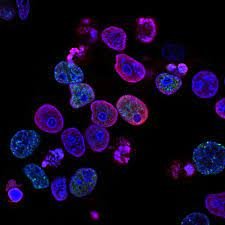Invisible Injuries: The Impact of Emotional and Psychological Trauma After an Accident
People are put through physical and emotional torment on roads every year. While the visible scars and injuries are immediately apparent, there is an often-overlooked aspect of the aftermath: invisible injuries. The emotional and psychological wounds are the ones that last much longer, even after physical ones have recovered.
Accidents that involve collisions, near-misses, and any other traumatic occurrences on the road can result in lifelong emotional as well as psychological scars. These injuries are often masked by veiled stoicism or resilience.
As physical injuries require time and treatment, invisible ones also deserve the same attention. It is a critical part of the post-accident feel, influencing people deeply.
A Houston auto accident lawyer can help you understand such matters.
The Emotional Aftermath
Accidents, whether they are minor fender benders or severe collisions, usually leave people dealing with a complicated and heated emotional aftermath.
Shock and Disbelief
Shock is a common initial emotional reaction following an accident. It is a state of indifference, shock, and inability to perceive reality. People may not be able to take in what happened now, which can result in a feeling of unreality and surrealness. This emotional response could be beneficial as a protective reflex, making the mind temporarily immune to the full impact of the situation.
Fear and Anxiety
Fear is another common feeling after an accident. Anxiety can present itself in so many different ways, from racing thoughts and restlessness to physical manifestations like an increased heart rate and trembling. It is crippling and usually hard for individuals to regain composure.
Guilt and Self-Blame
Guilt and self-blaming feelings are common, especially if people think they are the cause of the accident. They may play back the events in their mind and wonder if they could have prevented it.
These emotions can be saddening feel like a failure, and remorse.
Post-Traumatic Stress Disorder
After accidents, some people suffer from a severe and long-lasting psychological disorder called Post-Traumatic Stress Disorder PTSD.
PTSD can develop in a person after having been involved or witnessing some traumatic event, such as severe damage. It does not confine itself to war-related trauma but may be derived from any traumatic incident that causes distress.
Various factors affect the development of PTSD, such as the severity of trauma, one’s own coping mechanisms, and the support network a person has. The symptoms may take place immediately after the accident or subsequently.
PTSD requires early diagnosis and intervention among those affected. PTSD symptoms can become more entrenched if they are not treated for a longer time.
Effective PTSD treatments, including psychotherapy and medication. Early treatment can prevent the condition from developing into chronic and greatly increases an individual’s quality of life.
Mental health practitioners, support groups, and friends are essential in assisting PTSD survivors to find their way through the recovery process.
Invisible Injuries and Physical Health
There is a tight connection between the mind and body, and one’s emotional state can have a substantial impact on physical health. Physical responses could be triggered by emotional trauma, such as shock, fear, and anxiety following an accident.
Physiological changes are due to the body’s stress response, also called “fight. or flight.” response, include increased heart rate, raised blood pressure, and released stress hormones such as cortisol and adrenaline.
Manifestations of Stress and Traum
Stress and trauma can manifest in a range of physical symptoms, some of which may include:
Muscle Tension: People may suffer from muscle tension and rigidity, which causes headaches, neck pain, back pain etc.
Gastrointestinal Distress: Stress may play a role on the digestive system for symptoms of stomachaches, diarrhea or irritable bowel syndrome (IBS).
Sleep Disturbances: Trauma-related stress can interfere with sleep patterns, causing insomnia or even frequent nightmares.
Immune System Suppression: Chronic stress results in a compromised immune system and makes people prone to diseases.
Chronic Conditions: Chronic stress can aggravate existing chronic conditions, such as heart disease, diabetes, or autoimmune disorders.
The Role of Coping Mechanisms
Emotional trauma affects human beings otherwise, and it also affects their physical well-being. Physical symptoms may also result from taking part in dangerous coping mechanisms, which include alcohol abuse, smoking tobacco, or severe overeating, which could cause future fitness complications.
Healthy coping mechanisms like physical activity, mindfulness, and the use of expert services from an intellectual physician are really the most effective make contributions to physiological well-being and improved resilience.
Conclusion
Finally, in the end, of course, knowing and understanding how stress and depression affect physical health enable us to realize the importance of looking at both sides of well-being. By promoting a holistic perspective on the healing process, we will enable those who have undergone an invisible wound to find the assistance they need and help them recover emotionally, mentally, and physically.







